Abandon Read online
Page 2
I’m pretty sure the people who call Isla Huesos paradise never met my grandma.
“No,” Alex said with a laugh. “Blasphemy would be saying the light is coming from between the legs of their new mom as they’re being born into their next life. Of course, if you were Hindu, that wouldn’t be blasphemy at all.”
Grandma looked like she’d just bitten into a lemon.
“Well, Alexander Cabrero,” she said sharply. “You are not Hindu. And you may also want to remember that I’m the one making the payments on that junk heap you call a car. If you’d like me to keep on doing so, you might want to think about being a little more respectful.”
“Sorry, ma’am,” Alex murmured, looking down at the champagne puddle on the ground while, beside him, his father did the same, after quickly removing his baseball cap.
Grandma glanced over at me, seeming to force her expression into something a little softer.
“Now, Pierce,” she said. “Why don’t you come inside and say hello to Father Michaels? You won’t remember him, of course, from Grandpa’s funeral, because you were too young, but he remembers you and is so happy you’ll be joining our little parish.”
“You know what?” I said. “I’m not feeling so good.” I wasn’t making it up either. The heat was starting to feel oppressive. I wished I could undo a few of the buttons in the front of my too-tight dress. “I think I need some air.”
“Then come inside,” Grandma said, looking bewildered again. “Where it’s air-conditioned. Or it would be if your mother hadn’t opened all the doors —”
“What did I do now, Mother?” Mom appeared on the back porch and snagged a cocktail shrimp from the tray of a passing caterer. “Oh, Pierce, there you are. I was wondering where you’d disappeared to.” Then she saw my face and said, “Honey, are you all right?”
“She says she needs some fresh air,” Grandma said, still looking bewildered. “But she’s standing outside. What’s wrong with her? Did she take her medication today? Are you sure Pierce is ready to go back to school, Deb? You know how she is. Maybe she —”
“She’s fine, Mother,” Mom interrupted. To me, she said, “Pierce —”
I lifted my head. Mom’s eyes seemed darker than usual in the porch light. She looked pretty and fresh in her white jeans and loose, silky top. She looked perfect. Everything was perfect. Everything was going to be great.
“I’ve got to go,” I said, trying to keep down the panicky sob I felt rising in my throat.
“Go, then, honey,” Mom said, leaning down from the porch to press on my forehead with her hand as if she were feeling for a fever. She smelled like she always did, of her perfume and something Mom-like. Her long dark hair swept my bare shoulder as she kissed me. “It’s fine. Just don’t forget to turn on your bicycle lights so people can see you.”
“What?” Grandma sounded incredulous. “You’re just letting her go on a bike ride? But it’s the middle of the party. Her party.”
Mom ignored her.
“Don’t make any stops,” she said to me. “Stay on your bike.”
I turned around without saying another word to Alex and Uncle Chris, who were both staring at me in astonishment, and headed straight for the side yard where my new bike was parked. I didn’t look back.
“And, Pierce?” Mom called after me.
My shoulders tensed. What if what Grandma had said made her change her mind?
But all she added was “Don’t be too long. A storm is coming.”
When I beheld him in the desert vast,
“Have pity on me,” unto him I cried,
“Whiche’er you are, or shade or real man!”
DANTE ALIGHIERI, Inferno, Canto I
Everyone wants to believe that there’s something else — something great — waiting for them on the other side. Paradise.
Valhalla. Heaven. Their next — hopefully less horrible — life.
It’s just that I’ve been to the other side. So I know what’s there.
And it’s not paradise. At least, not right away.
It’s a truth I’ve had to bear alone, because nothing good has happened to the few people with whom I’ve shared it.
So sometimes I just have to get out before I say — or do — something I’ll regret. Otherwise, something bad will happen.
He will happen.
Mom understood. Not about him, of course — she didn’t know about him — but about my needing to get out. That’s why she let me go.
Tearing down the hill from our new house, the breeze in my hair instantly cooling me off, all I could think about was Grandma.
“Man? What man?”
That’s what Grandma said the other day at her house when I got up off the couch, where I’d been sitting watching the Weather Channel with Uncle Chris, and followed her into the kitchen to ask her about Grandpa’s funeral…more specifically, what had happened in the cemetery afterwards.
“You know,” I said. “The man I told you about. The one with the bird.”
We’d never had a chance to speak about it again. Not since the day it happened. Not only was that day supposed to be a secret — just between us girls, Mom and me — Grandma and I had never been in the same room together again, thanks to Dad.
As the years went by, what actually happened that afternoon in the cemetery began to seem more and more like a dream. Maybe it really had been just a dream. How could any of it have actually happened? It was impossible.
Then I died.
And I realized that what I’d seen that day in the cemetery not only hadn’t been a dream, it had been the singularly most important thing that had ever happened to me in my life. Well, up until my heart stopped.
“Go outside and play for a little while,” Grandma had said. “Your mom’s busy right now. I’ll come get you when we’re done.”
She and Mom had been in the cemetery sexton’s office after the funeral, signing the last of the paperwork for Grandpa’s tomb.
Maybe I had been a little fidgety. I think I’d knocked something over on the sexton’s desk. I wouldn’t be surprised. Like my cousin Alex, who’d also been there, I’d always had a problem paying attention.
Unlike Alex, my problem resulted in being less, not more, heavily supervised. Because I was a girl, and what kind of trouble could a girl get into?
I remember Mom looking up from whatever forms she was helping Grandma to fill out. She’d smiled at me through her tears.
“It’s okay, sweetie,” she’d said. “Go on outside. Just stay close. It’ll be all right.”
I had stayed close. Back then, I always listened to my mother.
I found the dove just a dozen yards or so from the cemetery sexton’s office. It was limping along the path between the tombs, one wing dragging along behind it, obviously broken. I immediately raced after it, trying to scoop it up, since I knew if I brought it back to my mom, she’d be able to help. She loved birds.
But I just ended up making things worse. The bird panicked and half flew, half leaped into the side of a nearby crypt, crashing against the bricks.
Then it just lay there. As I hurried to its side, I realized with horror that it was dead.
Naturally, I began to weep. I’d already felt pretty sad, considering the fact that I’d just been at the funeral of a grandparent I’d never met, then been kicked out of the cemetery sexton’s office for my misbehavior. Now this?
That’s when the man had come along the path. To me, a first grader, he’d seemed impossibly tall, almost a giant, even after he knelt down beside me and asked why I was crying.
Looking back, I realize he was only in his teens, hardly a man at all. But as tall as he was, and given that he was dressed all in black, he’d seemed much older to me than his actual years.
“I was t-trying to help,” I’d said, nearly incoherent with sobs, as I pointed to the bird. “She was hurt. But then I scared her and made it worse. Now she’s dead. It was an ac-ac-accident.”
“Of course it was,”
he said, reaching down to scoop up the limp, fragile body in one hand.
“I don’t want to go to hell,” I wailed.
“Who said you were going to hell?” he asked, looking bemused.
“That’s where murderers go,” I informed him tearfully. “My grandma told me.”
“Well, you aren’t a murderer,” he assured me. “And I think you’ve a bit of time before you have to start worrying about where you’re going after you die.”
I wasn’t supposed to speak to strangers. My parents had drilled this into my head.
But this stranger seemed nice enough. And my mother was only just down the path, inside the office. I was sure I was safe.
“Should we find a coffin for her?” I asked, pointing at the bird. I was bursting with knowledge I’d just learned at the funeral that afternoon. “When we die, we’re supposed to get put inside a coffin, and then no one sees us ever again.”
“Some of us,” the stranger had replied a bit drily. “Not all of us. And yes, I suppose we could put her in a coffin. Or I could make her come alive again. Which would you prefer?”
“You can’t make her come alive again,” I’d said, so startled by the question, my tears were forgotten. He’d been petting the bird, which was very definitely dead. Its head drooped over the top of his fingers, its neck broken. “No one can do that.”
“I can,” he said. “If you’d like.”
“Yes, please,” I’d whispered, and he passed his hand over the bird. A second later, its head popped up, and with a bright-eyed flutter, it took off from his hands, its wings beating strongly as it flew off into the bright blue sky.
I was so thrilled, I’d cried, “Do it again!”
“I can’t,” he said, climbing to his feet. “She’s gone.”
I thought about this, then reached out to take his hand and began tugging. “Can you do it to my grandpa? They just put him over there —” I pointed towards a crypt on the far side of the cemetery.
He’d said, not unkindly, “No. I’m sorry.”
“But it would make my mom so happy. Grandma, too. Please? It’ll only take a second —”
“No,” he said again, beginning to look alarmed. He knelt down beside me once more. “What’s your name?”
“Pierce,” I said. “But —”
“Well, Pierce,” he said. His eyes, I’d noticed, were the same color as the blades on my ice skates back in Connecticut. “Your grandfather would be proud of you. But it’s best just to leave him where he is. It might frighten your mother and grandmother a bit to see him up and walking around after he’s already been buried, don’t you think?”
I hadn’t considered this, but he was probably right.
That’s when Grandma came looking for me. The man saw her. He had to have seen her, and she him, since they exchanged polite “good afternoons” before the man turned and, after saying goodbye to me, walked away.
“Pierce,” Grandma said when she reached me. “Do you know who that was?”
“No,” I said. But I proceeded to tell her everything else about him, and the miraculous thing he’d done.
“And did you like him?” Grandma asked, when I’d come to the end of my breathless narration.
“I don’t know,” I replied, bewildered by the question. He’d made a dead bird come back to life! But he’d refused to do the same for Grandpa. So it was a problem.
Grandma had smiled for the first time all day.
“You will,” she said.
Then she’d taken hold of my hand and walked me back to the car, where Mom and Alex were waiting.
I remembered looking back. There was no sign of the man, just scarlet blossoms from the twisting black branches of a poinciana tree that hung like a canopy above our heads, bursting red as firecrackers against the bright blue sky.…
But now, like everyone I’d told about what I’d seen when I died — not a light but a man — Grandma insisted I’d imagined the entire thing.
“Of course there wasn’t a man in the cemetery, bringing birds back from the dead,” she’d said the other day in her kitchen, shaking her head. “Whoever heard of such a thing? You know, Pierce, I worry about you. Always daydreaming…and ever since your accident, I hear you’ve gotten worse. And don’t think you’re going to get by on just your looks, either. Your mother has looks and brains, and see what happened to her? Pretty is all well and good until Mr. Moneybags decides he’s going to let your child drown —”
“Grandma,” I said, trying to keep my voice even. “How can you say the man wasn’t there when you yourself asked me if I —”
“I really hope this new school works out for you, Pierce,” Grandma interrupted. “Because you certainly managed to burn some bridges at your last one, didn’t you?” She thrust a tray of sandwiches into my arms. “Now take that in to your uncle before he starves to death. He hasn’t had a speck to eat since breakfast.”
I had left her house then and there — after delivering the sandwiches, of course — and set off on my bike for home. I felt like I had to before something awful happened. Awful things always seemed to happen when I got mad. Things that weren’t my fault. It was better for me to leave before they got worse.
Before he showed up.
Now, here I was on my bike again, only this time I was pedaling with no particular destination in mind. I just needed to get away…from Grandma. From questions. From the sound of all that party chatter. From the splashing of the waterfall into that pool…especially from that pool…
Unlike “the incident” last spring at my old school, the accident was my fault. I tripped — on my own scarf — and hit my head, then fell into the deep end of our pool back in Connecticut.
I’d been trying to rescue an injured bird…yes, another one.
That bird survived, and without the help of the stranger from the Isla Huesos Cemetery.
I was not so lucky.
The temperature of the water when I hit it was as paralyzing as the blow I’d received to the back of my head. It quickly soaked through my winter coat and boots, making my arms and legs too heavy to lift even to dog-paddle, let alone swim. The heavy canvas pool cover that Dad had forgotten to get fixed collapsed instantly beneath my weight and tangled around me, as constricting as the embrace of a python.
I was too far from the safety ladder or the steps to swim to them, weighted as I was with my clothing and all that canvas pulling me downward. If I had managed to reach the steps, I doubt I’d have had the strength to pull myself up.
I tried my best, though. It’s amazing what a fifteen-year-old, even one with a subdural hematoma, can do when she’s desperate to stay alive.
Dad had been on a conference call in his study at the time, way at the far end of the house. He’d forgotten that Mom was at the library, working on finishing her dissertation on the mating habits of roseate spoonbills, and that I wasn’t over at my best friend Hannah’s or the animal shelter, where I volunteered, and that it was the housekeeper’s day off.
Just like he’d forgotten to mention to anyone that a couple of the metal rivets that were supposed to hold the pool cover in place had rusted through over the course of the winter.
Not that it would have made much of a difference — at least to me — if Dad had remembered any of these things, or even if he’d been off the phone. I never got a chance to scream for help. Drowning doesn’t happen in real life the way it does in the movies. By the time it entered my contused skull that I was in any kind of trouble, the weight from all the water I’d reflexively swallowed from the shock of the cold — it was February in New England — had already caused my body to sink to the bottom of the pool like a stone.
After the initial panic and pain, it was actually quite peaceful down there. All I could hear was my own heartbeat and the sound of the bubbles coming from my throat…and both of these were growing fainter, and further apart.
I didn’t know at the time that this was because I was dying.
The afternoon sunlight —
streaming through the leaves that had blown across the top of the water — made beautiful patterns on the floor of the pool around me. It reminded me of the way the sun had streamed through the stained-glass windows in the church where they’d held my grandfather’s funeral. Even though I wasn’t supposed to talk about it, I’d never forgotten that day, or how hard my mom and grandmother had sobbed throughout the service.…
Nor had I forgotten how tightly Grandma had held my hand as she led me away from the cemetery afterwards, and how red those blossoms from the branches of the poinciana trees had looked against the sky above our heads…
…red as the tassels on the ends of my scarf floating up and around my face as I lay dying at the bottom of our pool.
Maybe that’s why when I saw them again after I rode away from the party — not the tassels, of course, but the poinciana blossoms — I jammed on my bicycle’s brakes.
I hadn’t realized I’d ridden as far as the cemetery. My feet had taken me there unconsciously.
I knew why, of course. It wasn’t the first time it had happened.
I’d ridden through the cemetery more than once since arriving on Isla Huesos — Mom had even included it on the little “orientation” tour she gave me on my arrival. Because all the coffins were in aboveground crypts and vaults, the graveyard had become one of the island’s top sightseeing destinations. It turns out if you bury bodies in a place regularly flooded by hurricanes, all the skeletons will pop up out of the ground. Then you’ll find your loved ones’ remains dangling from trees and fences, or even down at the beach, like something out of a horror movie.
“That’s why,” Mom had informed me, “Spanish explorers who discovered this island five hundred years ago christened it Isla Huesos — Island of Bones. When they got here, it was covered with human bones, probably from a storm that had washed up an Indian burial ground.”
But though I’d ridden through the cemetery several times since my arrival on Isla Huesos, I’d never been able to find the tree I’d seen that day when I was seven. Not until the night of the party.

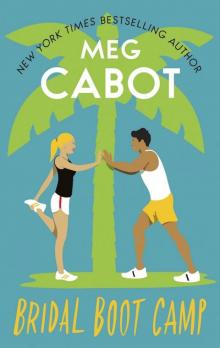 Bridal Boot Camp
Bridal Boot Camp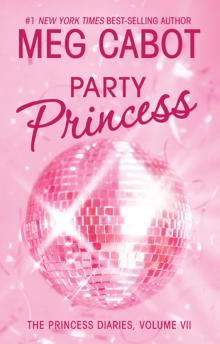 Party Princess
Party Princess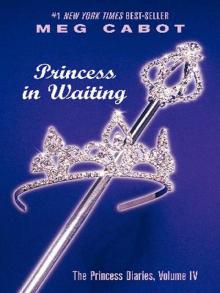 Princess in Waiting
Princess in Waiting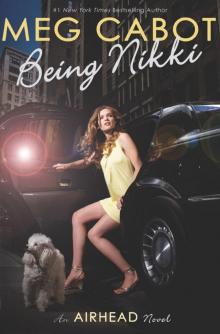 Being Nikki
Being Nikki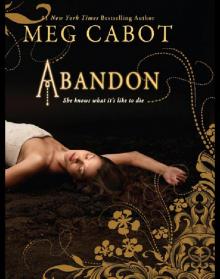 Abandon
Abandon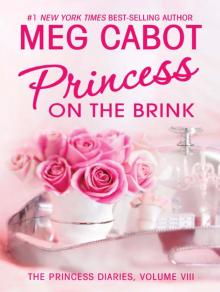 Princess on the Brink
Princess on the Brink Darkest Hour
Darkest Hour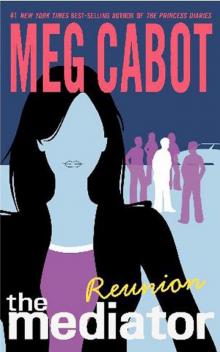 Reunion
Reunion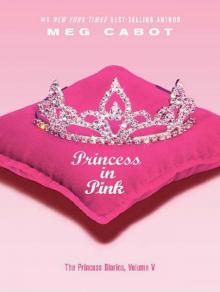 Princess in Pink
Princess in Pink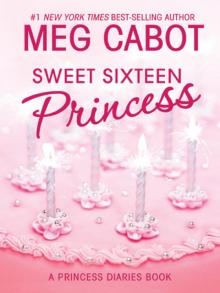 Sweet Sixteen Princess
Sweet Sixteen Princess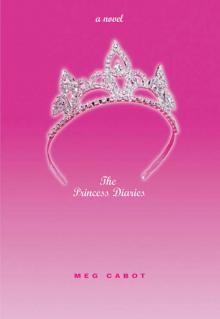 The Princess Diaries
The Princess Diaries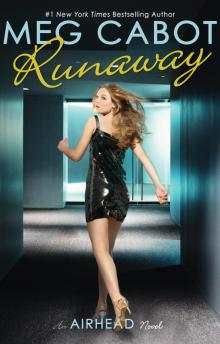 Airhead
Airhead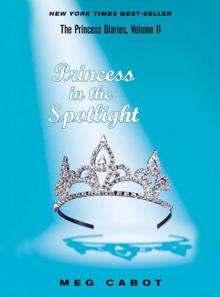 Princess in the Spotlight
Princess in the Spotlight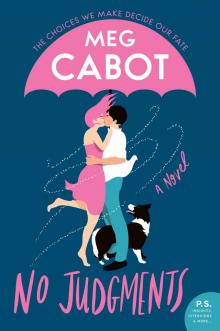 No Judgments
No Judgments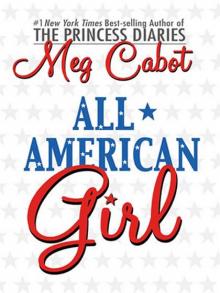 All-American Girl
All-American Girl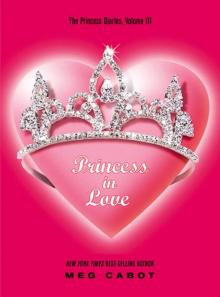 Princess in Love
Princess in Love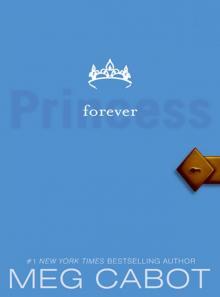 Forever Princess
Forever Princess Haunted
Haunted Shadowland
Shadowland Twilight
Twilight Princess Mia
Princess Mia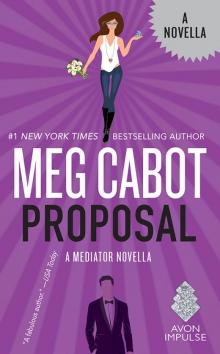 Proposal
Proposal Remembrance
Remembrance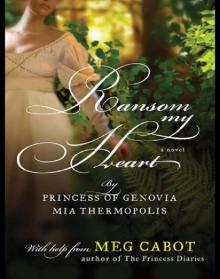 Ransom My Heart
Ransom My Heart Underworld
Underworld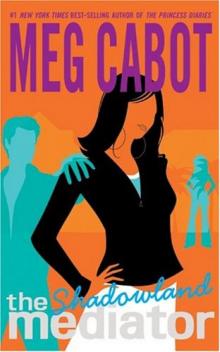 Shadowland tm-1
Shadowland tm-1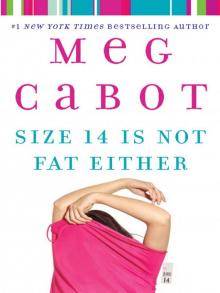 Size 14 Is Not Fat Either
Size 14 Is Not Fat Either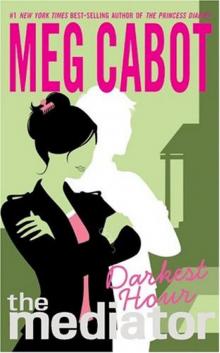 Darkest Hour tm-4
Darkest Hour tm-4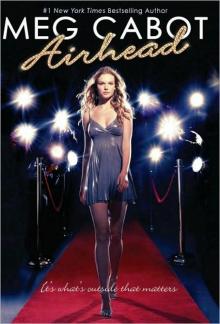 Airhead a-1
Airhead a-1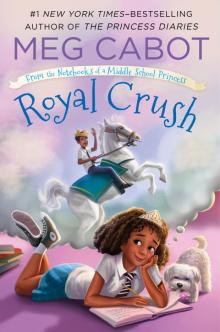 Royal Crush
Royal Crush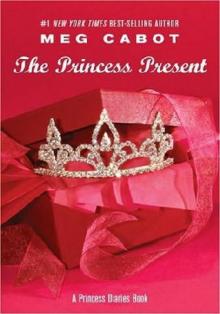 The Princess Present (princess diaries)
The Princess Present (princess diaries)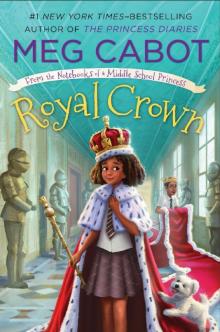 Royal Crown
Royal Crown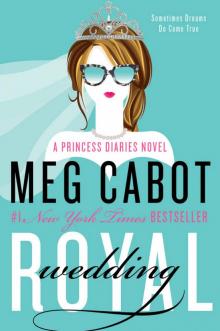 Royal Wedding: A Princess Diaries Novel (The Princess Diaries Book 11)
Royal Wedding: A Princess Diaries Novel (The Princess Diaries Book 11)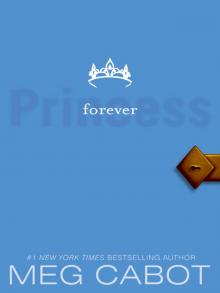 Princess Diaries, Vol. X: Forever Princess
Princess Diaries, Vol. X: Forever Princess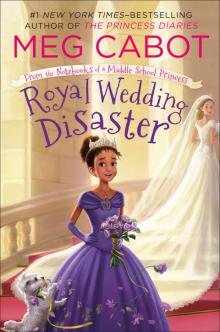 Royal Wedding Disaster
Royal Wedding Disaster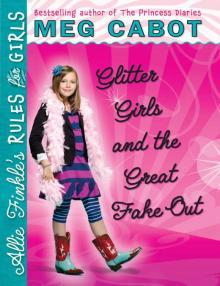 Allie Finkle's Rules for Girls: Glitter Girls and the Great Fake Out
Allie Finkle's Rules for Girls: Glitter Girls and the Great Fake Out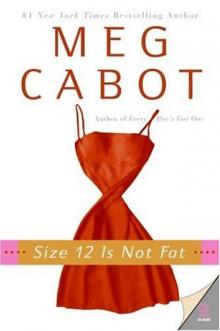 Size 12 Is Not Fat hwm-1
Size 12 Is Not Fat hwm-1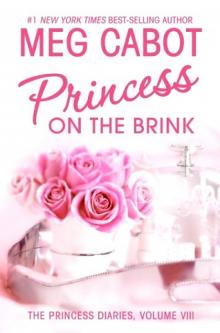 Princess on the Brink pd-8
Princess on the Brink pd-8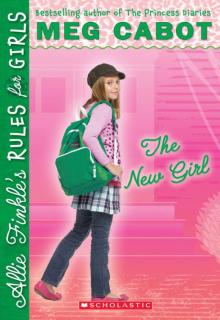 The New Girl
The New Girl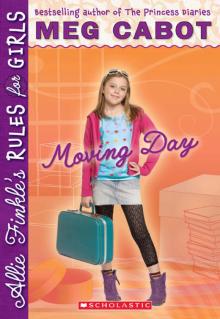 Allie Finkle's Rules for Girls: Moving Day
Allie Finkle's Rules for Girls: Moving Day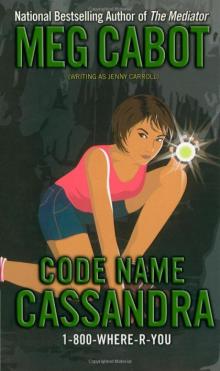 Code Name Cassandra
Code Name Cassandra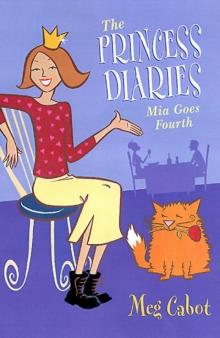 Mia Goes Fourth pd-4
Mia Goes Fourth pd-4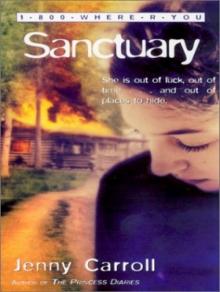 Sanctuary 1-4
Sanctuary 1-4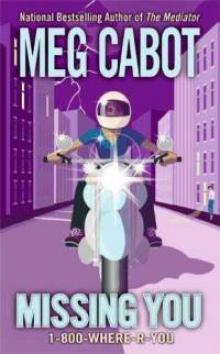 Missing You 1-5
Missing You 1-5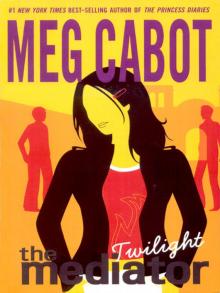 The Mediator 6: Twilight
The Mediator 6: Twilight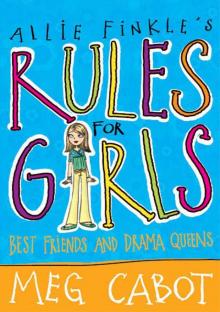 Allie Finkle's Rules for Girls: Best Friends and Drama Queens
Allie Finkle's Rules for Girls: Best Friends and Drama Queens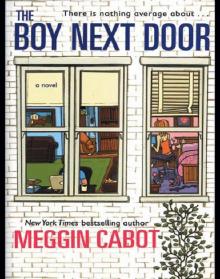 The Boy Next Door
The Boy Next Door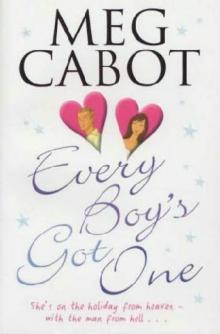 Every Boy's Got One
Every Boy's Got One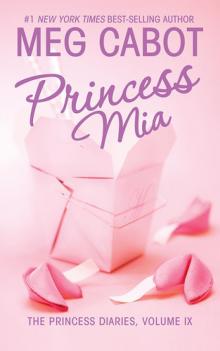 Princess Mia pd-9
Princess Mia pd-9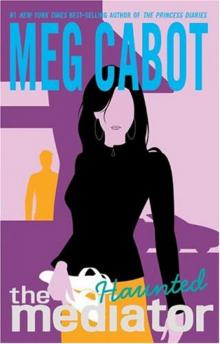 Haunted tm-5
Haunted tm-5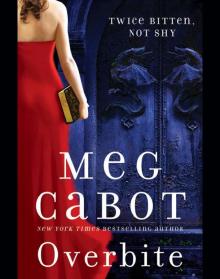 Overbite
Overbite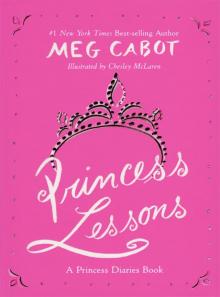 Princess Lessons
Princess Lessons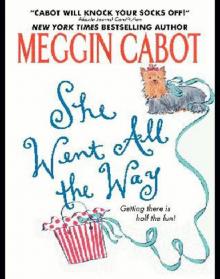 She Went All the Way
She Went All the Way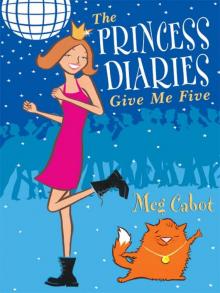 Give Me Five pd-5
Give Me Five pd-5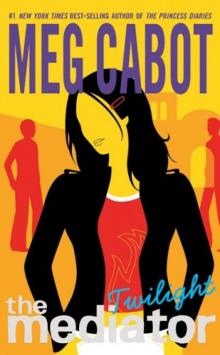 Twilight tm-6
Twilight tm-6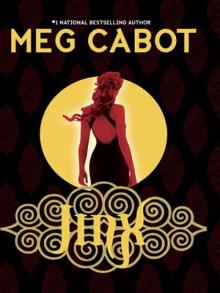 Jinx
Jinx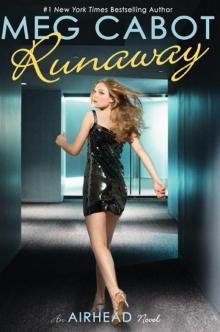 Runaway (Airhead #3)
Runaway (Airhead #3)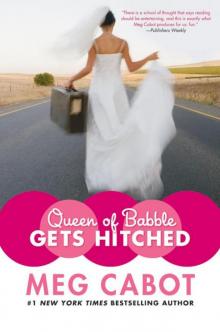 Queen of Babble Gets Hitched qob-3
Queen of Babble Gets Hitched qob-3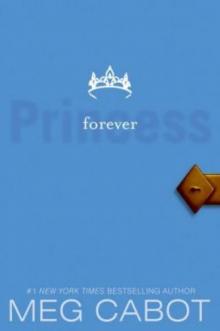 Forever Princess pd-10
Forever Princess pd-10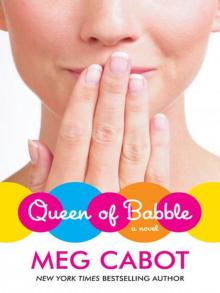 Queen of Babble
Queen of Babble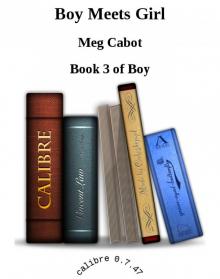 Boy Meets Girl b-3
Boy Meets Girl b-3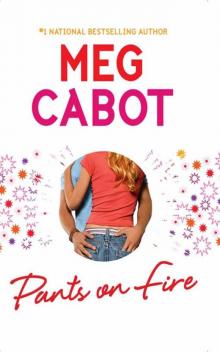 Pants on Fire
Pants on Fire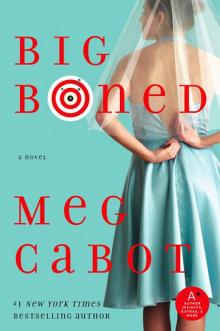 Big Boned ху-3
Big Boned ху-3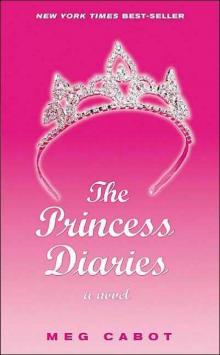 Princess' Diaries pd-1
Princess' Diaries pd-1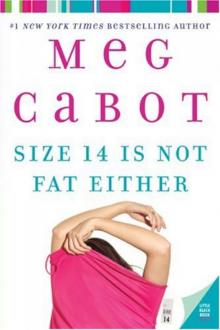 Size 14 Is Not Fat Either hwm-2
Size 14 Is Not Fat Either hwm-2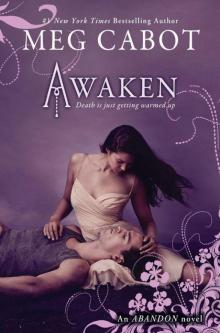 Awaken a-3
Awaken a-3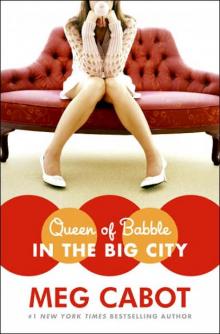 Queen Of Babble: In The Big City qob-2
Queen Of Babble: In The Big City qob-2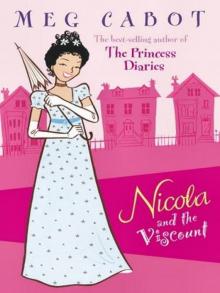 Nicola and the Viscount
Nicola and the Viscount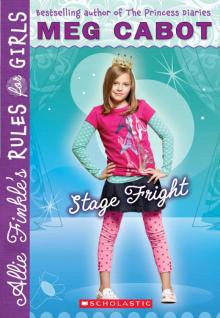 Allie Finkle's Rules for Girls: Stage Fright
Allie Finkle's Rules for Girls: Stage Fright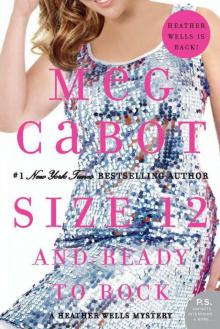 Size 12 and Ready to Rock
Size 12 and Ready to Rock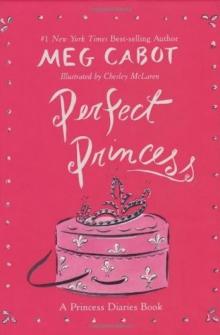 Perfect Princess
Perfect Princess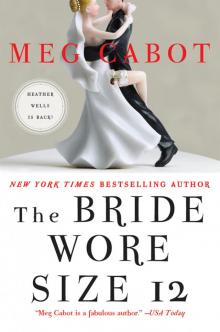 The Bride Wore Size 12
The Bride Wore Size 12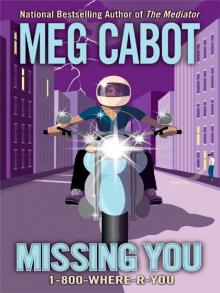 1-800-Where-R-You: Missing You
1-800-Where-R-You: Missing You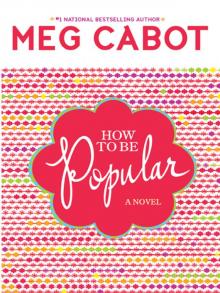 How to Be Popular
How to Be Popular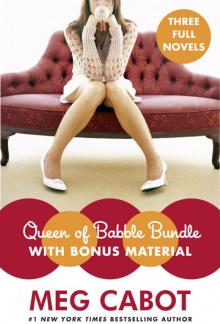 Queen of Babble Bundle with Bonus Material
Queen of Babble Bundle with Bonus Material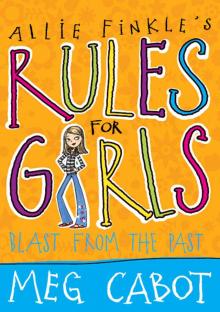 Allie Finkle's Rules for Girls: Blast from the Past
Allie Finkle's Rules for Girls: Blast from the Past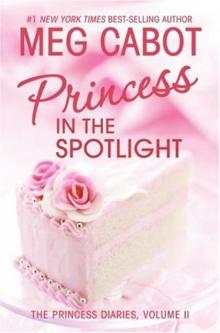 Princess in the Spotlight pd-2
Princess in the Spotlight pd-2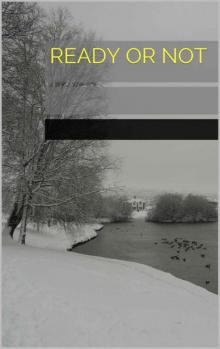 Ready or Not
Ready or Not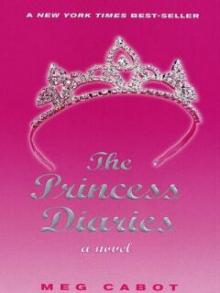 The Princess Diaries I
The Princess Diaries I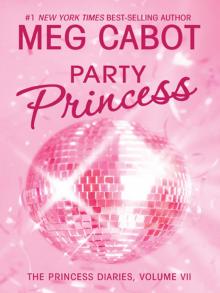 Party Princess pd-7
Party Princess pd-7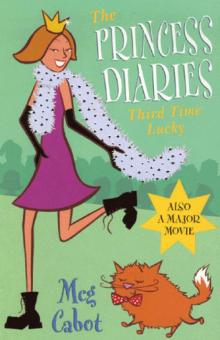 Third Time Lucky pd-3
Third Time Lucky pd-3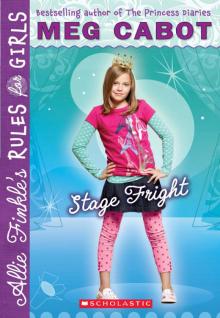 Stage Fright
Stage Fright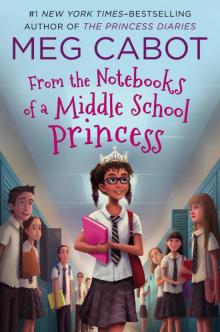 From the Notebooks of a Middle School Princess
From the Notebooks of a Middle School Princess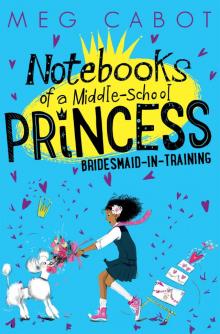 Notebooks of a Middle-School Princess Bridesmaid-in-Training
Notebooks of a Middle-School Princess Bridesmaid-in-Training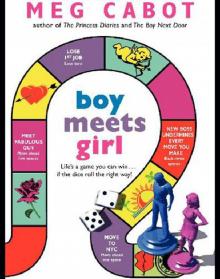 Boy Meets Girl
Boy Meets Girl Missing You
Missing You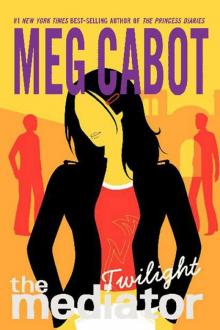 The Twilight
The Twilight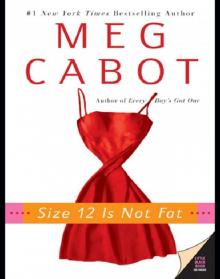 Size 12 Is Not Fat
Size 12 Is Not Fat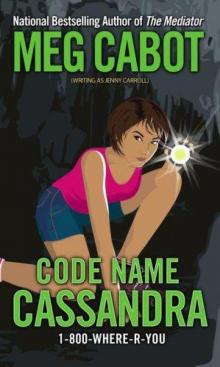 Code Name Cassandra 1-2
Code Name Cassandra 1-2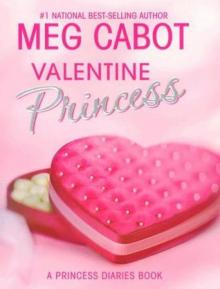 Valentine Princess
Valentine Princess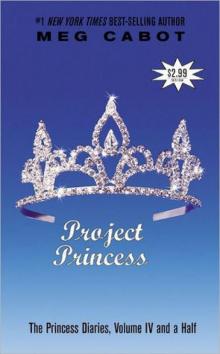 Project Princess
Project Princess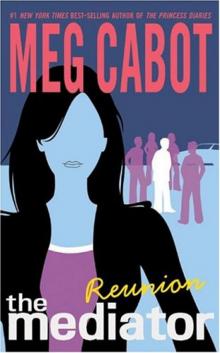 Reunion tm-3
Reunion tm-3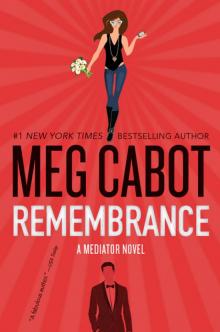 Remembrance: A Mediator Novel
Remembrance: A Mediator Novel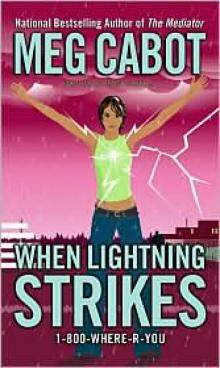 When Lightning Strikes 1-1
When Lightning Strikes 1-1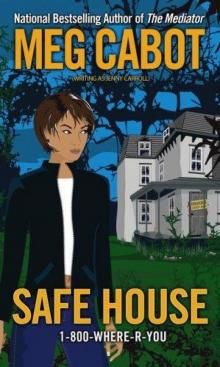 Safe House 1-3
Safe House 1-3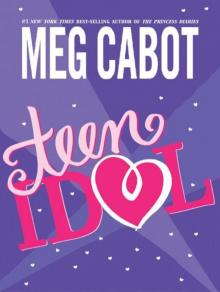 Teen Idol
Teen Idol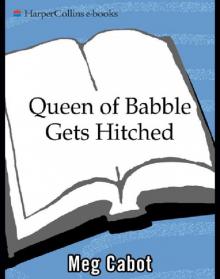 Queen of Babble Gets Hitched
Queen of Babble Gets Hitched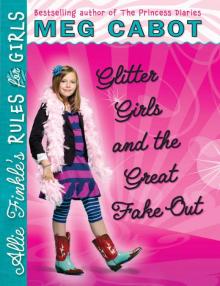 Glitter Girls and the Great Fake Out
Glitter Girls and the Great Fake Out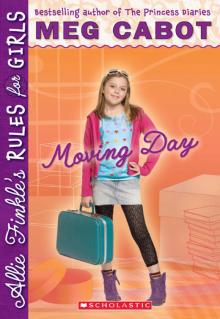 Moving Day
Moving Day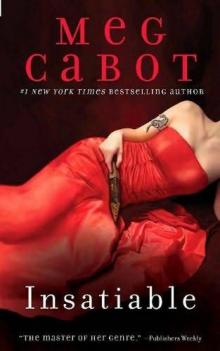 Insatiable
Insatiable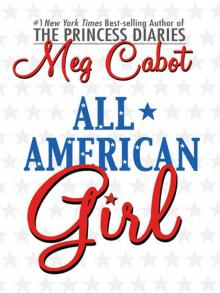 All American Girl
All American Girl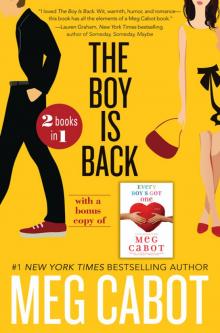 The Boy Is Back + Every Boy's Got One Bundle
The Boy Is Back + Every Boy's Got One Bundle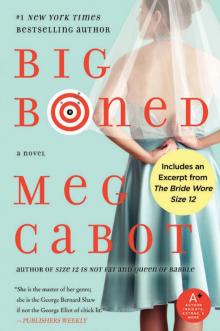 Big Boned
Big Boned Awaken
Awaken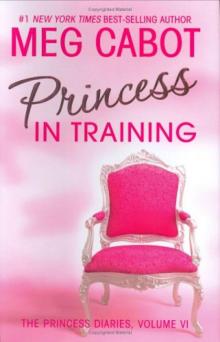 Princess in Training pd-6
Princess in Training pd-6